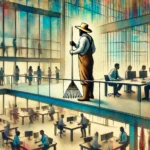Save our trees, for the sake of your grandchildren
This is the time of year when Nairobi becomes Jacaranda City.
Everywhere you look, the famed trees are in blossom, painting the skyscape a vivid lilac, and precipitating our well-known ‘purple rain’ as they shed their flowers and create beautiful natural carpets all over the city.
But look around, and you will see that this beauty may not be with us for much longer. As I have highlighted on this page for quite a while now, Nairobi’s trees are under concerted attack. Not just the ornamental Jacarandas and Cassias, but the more important indigenous Crotons, Podos and Acacias on which the natural ecosystem is so dependent.
Rapacious developers and frenzied road-builders are at it everywhere, their buzz saws rending the air and their ropes bringing yet another proud old specimen crashing to the ground. They are out of control, and no one seems to care about bringing them back into control. Some of the grand trees being felled took 50 years or more to come to maturity; all it takes is one money-crazed idiot to ruin nature’s work of decades.
Am I against new buildings and new roads? Of course I am not. Kenya is on a rapid development path now, and dramatic change in the way that its cities look is a necessary consequence of that path. But for the love of God, who says trees and humans cannot co-exist? Who says trees are natural victims of human advancement? Only the brainless and the short-sighted can say that.
I am reminded of something I heard my friend George Njenga, Dean of Strathmore Business School, say at a forum we ran together for chairpersons of boards recently. “One of the key responsibilities we all have is to ensure we build a society fit for our grandchildren,” said George. Indeed so. In all the decisions we make, we would be utterly obtuse and selfish if we added lucre to our generation while impoverishing our children and grandchildren.
Wholesale wrecking of the natural environment is one such decision. A few people will line their pockets; but the ecosystem that will sustain our grandchildren will be laid to waste. Why are we doing this, why are we being so obtuse? Clearly, education has failed us massively when it comes to understanding nature. Many of the world’s most prominent societies have been felled throughout history, not by external forces, but by their own greed and neglect of their natural environments. This knowledge is lost on us.
Yet this is not something we can leave to education and individual decency alone. Protecting the environment is a job for the government and regulators as much as it is for any citizen. And that is where the biggest failure is happening.
Developers, architects and contractors are razing every tree to the ground when they begin a new development – and no one stops them. Permits to chop trees down are readily found in unfit hands – and no one does a thing.
At this point, some of you may think this is an anti-development stance. Not at all. To want to save the beauty that adorns a city, and the ecosystem that sustains it is not to be against economic advancement; it is in fact to be all for it. More people will benefit, in more ways and for a longer period, if we act sensitively and sensibly towards nature.
Wangari Maathai left us just over a year ago now. We all wailed. Leaders shed huge tears at her funeral. How have we honoured her legacy in the first year since her passing? By denuding our greatest city of shade, greenery, blossom and birdsong?
It is perfectly possible to develop economies and protect trees. For more on that, see you here next week, same time, same place.

Buy Sunny Bindra's book
UP & AHEAD
here »
Popular Posts
- What is a nation?June 30, 2024
- To be a great leader, think like a farmerJuly 21, 2024
- Don’t be surprised by surprisesJuly 14, 2024
- It takes mavericks to change the gameJuly 7, 2024
- Why we should all be activistsJune 16, 2024















